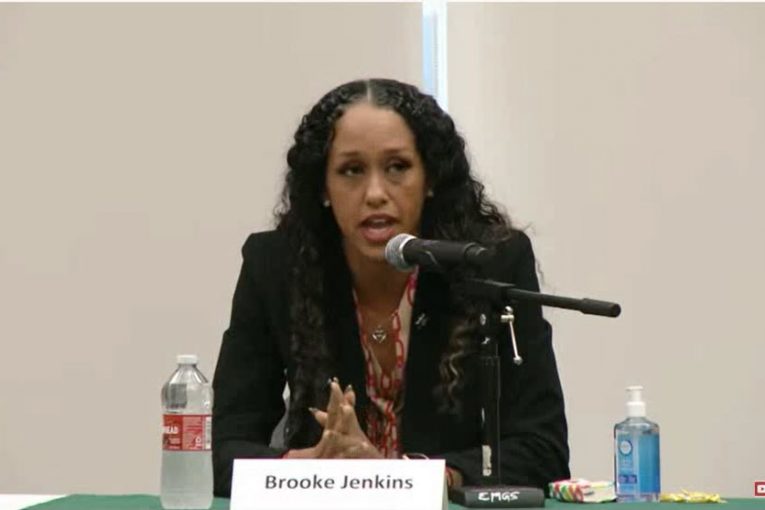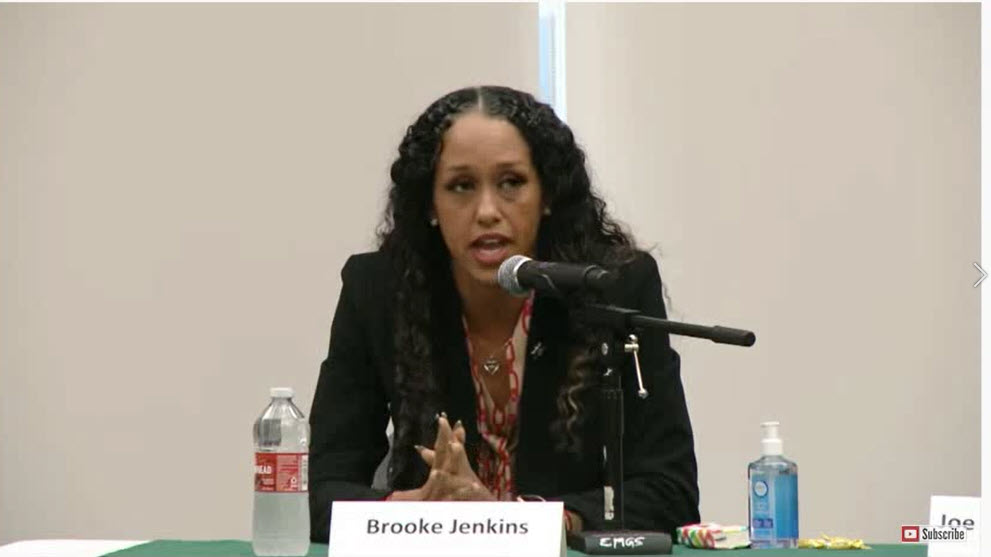

By David M. Greenwald
Executive Editor
San Francisco, CA – Scott Grant, a Deputy Public Defender in San Francisco representing Troy McAlister, filed a motion to disqualify the San Francisco DA’s Office from prosecuting the case pursuant to PC section 1424 “on the grounds that Brooke Jenkins’ personal and political motivations have undermined her and her office’s ability to prosecute this matter fairly and impartially.”
The motion alleges that the DA “improperly accessed Troy McAlister’s criminal history and case documents, advocated for the recall of Chesa Boudin using Troy McAlister’s name and case, continued publicly commenting on Troy McAlister after being appointed District Attorney, fundraised and campaigned using Troy McAlister’s name, and continues to fail to admit to improperly accessing Troy McAlister’s case information and criminal history.”
The case of Troy McAlister may have bookended the recall effort. His alleged conduct that led to the deaths of two pedestrians on New Year’s Day 2021 helped to launch the  recall effort against former DA Chesa Boudin.
recall effort against former DA Chesa Boudin.
Less than a week before the election in November 2022, news reports alleged that interim San Francisco District Attorney Brooke Jenkins may have violated state law by sharing “sensitive case information with a fellow prosecutor while both of them were on their way out of the office” in October 2021.
According to news coverage, “Jenkins took sensitive documents to be used in the campaign to recall her predecessor, Chesa Boudin,” and “used her work email to forward police reports and a rap sheet related to a vehicular manslaughter suspect named Troy McAlister — after she’d put in her notice to quit.”
The email was directed to then-fellow prosecutor Don du Bain, who had also resigned to join the recall effort, on Oct. 9, 2021.
State law purportedly prohibits the dissemination of records such as rap sheets to people who aren’t authorized to receive them for official purposes.
“Do Brooke Jenkins’ actions and public comments show a reasonable possibility that her office may not exercise its discretion evenhandedly?” Grant asked in his 21-page motion that will be heard on January 25 at San Francisco’s Hall of Justice.
Jenkins was an Assistant DA who left the office on October 16, 2021, and Du Bain left on the same day. Both would go on to work on the recall campaign.
According to a November 2, 2022, article in the Mission Local, “[i]n a potential violation of state law, then-Assistant District Attorney Brooke Jenkins last year sent sensitive files from the DA’s office to a fellow district attorney’s personal email account—and subsequently used the materials in the political campaign to oust DA Chesa Boudin.”
At that point, neither had any connection to the McAlister case as part of their employment at the DA’s office.
During the recall campaign, the motion alleges that “Jenkins and du Bain both referenced McAlister, his case, and his criminal record multiple times in arguing for harsher criminal punishments.”
That pattern has continued since Jenkins was appointed DA by Mayor Breed in June 2022.
“Since being appointed as the District Attorney, Brooke Jenkins has discussed the Troy McAlister case in the media, advocating for harsher treatment than Boudin chose while he was District Attorney,” the motion alleges.
Jenkins told the Chronicle in August 2022 that, with her pretrial detention policy, she “wanted to avoid a repeat of the Troy McAlister case.”
She also told Asahi Shimbun in a November 17, 2022, article, that McAlister “should never have been out in the first place.”
A bar complaint was filed against Jenkins by retired judge Martha Goldin.
“She admitted she intentionally sent the email, but she has claimed that she meant to send it to his governmental email address as opposed to his personal email address,” the motion notes. “To date, Jenkins has not provided any reason for accessing or sharing any files, police reports, or the rap sheet of Troy McAlister given that at the time she was not professionally involved in the McAlister case.”
The motion also notes that legal experts have weighed in on the ethics of her conduct.
Santa Clara University School of Law professor W. David Ball stated that “Jenkins and du Bain’s actions constituted a weaponization of the prosecutor’s office.”
He was quoted as saying, “The model we have of the prosecutorial function is that we are not punishing political enemies[.] We can disagree about what prosecutorial policies should be. But making this a political tool to use the position of the office to attack political enemies? That really is quite dangerous.”
Current San Mateo District Attorney Stephen Wagstaffe described the underlying conduct as a “fireable offense” in his office, as “it is a misdemeanor offense to share a rap sheet for any purpose other than doing the prosecution.”
Former Los Angeles District Attorney Gil Garcetti stated that “[a prosecutor] should not be sending police reports or rap sheets to anyone who does not have a direct interest in the particular case” and that if prosecutors “cannot articulate a reason to get a rap sheet, [they] should not have it.”
University of California, Hastings, Professor Richard Zitrin and Fordham law professor of ethics Bruce Green both noted serious ethical issues involved in Jenkins’ conduct. Green stated, “[t]he question is not what email she sent it to, but why is she sending it at all? I can’t think of a legitimate law-enforcement purpose for sending this rap sheet to anyone as she’s about to leave the office.”
Grant argues, “Jenkins’ repeated public comments, improper actions, and lack of disclosure show a reasonable likelihood that McAlister will not receive impartial treatment at all stages of his case.”
He added, “Jenkins has overriding personal and political interests in the McAlister matter.”

